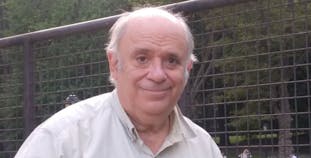July 28, 2021
Advance Online

Advance Online
Getting to Know Glenn Speer
You name a treatment, Glenn has probably tried it.

You name a treatment, Glenn has probably tried it.
We use cookies to offer you a better experience and analyze our site traffic. By continuing to use this website, you consent to the use of cookies in accordance with our Privacy Policy.